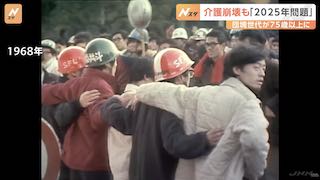Mar 22 (newsonjapan.com) - Most Asian families have an all-time favorite traditional game they enjoy playing during gatherings.
Not only do these games have an impressively rich and interesting history attached to them, but they are also a great way of celebrating holidays, stepping into a new year, making new friends, or having a fun time on the weekends.
The pool of games encompassing the Japanese, Chinese, or Thai culture consists of hundreds of titles. The tradition of games is still strong in many Asian cultures.
Bangkok's PokDeng – A Fun Card Games With Thai Origins
Also called Pok Kao, PokDeng is one of the most beloved, light-hearted, and engaging card games in Thailand. The game is somewhat similar to the standard game of blackjack and it has a minimum requirement of two players. However, the game can engage up to 17 players, and one of them is de dealer. Players must place bets (snacks, candy, or drinks) then wait to be dealt two cards. Next, they need to choose either to hold on to the cards they received or draw a new card prior to comparing their hand with the dealer’s hand.
Karuta, the Japanese Game Played During Traditional Celebrations
Karuta is a spectacular game of cards played by the Japanese people while celebrating important holidays or events in their lives. The rules are easy and they require players to choose the right card from a different array of cards. The game is played with two groups of cards with 100 cards each (Torifuda and Yomifuda) for a total of 200 cards. The Yomifuda group consists of reading cards, whereas the Torifuda group is made of grabbing cards. Yomifuda cards feature various writings that will help players know which Torifuda cards to pick. One player will be responsible for reading the writings on the Yomifuda cards, while the rest of the players will start looking for the perfect matching cards in the Torifuda group.
The winner of the Karuta game is the player who manages to find the largest number of matching cards. The game also has a captivating “Uta-garuta” alternative that uses traditional Japanese poems on the cards. You can find unique Karuta plaques made of wood and ceramics for an even more traditional gaming experience in local shops across the country.
Menko, a Simple Japanese Game for Children
Menko is another beloved Japanese card game with particularly simple rules to memorize. The game uses cards called menko with manga, cartoons, anime, or sports players drawn on them. It can be played by a random number of players. Participants will start by playing a rock-paper-scissors game to decide who will be the first player.
The rest of the players will place one menko card facing down, while the first player will attempt to flip the respective cards by throwing one of his own cards over them. When the first player succeeds to flip a card, he will grab both the respective card and his own card. If the first player fails, another player will come into play. The player who manages to collect the largest number of menko cards wins.
Dou Dizhu or Chinese Poker – Fight the Landlord
This is a highly popular traditional card game played in China. The game is usually played with standard poker cards used by regular gamblers in online or land casinos, which is why it is oftentimes referred to as Chinese poker. Dou Dizhu is played at a fast pace and it is normally played in groups consisting of at least three players. It comes with dozens of different rules and it is played differently, depending on the area it originates in. Many refer to Chinese poker as a game that is simple to learn, but difficult to master. Indeed, the game asks players to use flawless strategies to go over the first few rounds, so if you are a casino aficionado who enjoys new challenges, you might want to give it a try.
Sungka, the Game Played on Pea-Shaped Boards in the Philippines
Sungka is another traditional game played in the Philippines between two players using a game board shaped like a pea. The board features a number of crevices that are placed in rows on both sides of the board, as well as a larger crevice on each of the ends. An equal number of shells is placed in the small crevices on the board. Players must pick up new shells and transfer them until they reach the large crevice corresponding to their side of the board. The movements are counterclockwise. The winner is the player who gathers the most shells to the large crevice.
The game can also be played online on smartphones and tablets, similar to MahJong, Rummy, and other modernized variants of traditional Asian games that have reached players in recent years.
Conclusion
These are just a few of the most popular Asian games with century-old histories that will bring you closer to the culture of Asian countries and their people. Try any of them whenever you are looking for something fun to do and you won't regret it.















